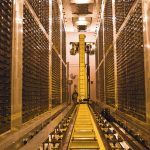 The power of genetics is something that I’ve touched on a number of times. Technology has already made it considerably cheaper to sequence the human genome, whilst AI is also helping us to make sense of the data generated.
The power of genetics is something that I’ve touched on a number of times. Technology has already made it considerably cheaper to sequence the human genome, whilst AI is also helping us to make sense of the data generated.
A recent collaboration aims to take genetics and catapult it forward. The group, consisting of six pharmaceutical companies, aim to decode the genes of roughly 500,000 Brits, with the data made available to the public by 2020.
The work revolves around the UK Biobank, which is a public database containing a treasure trove of medical data, including medical records, test results and psychological assessments for half a million volunteers. When combined with their DNA samples, it’s believed to be the largest concentration of health data in the world.
The consortium was brought together by Regeneron Pharmaceuticals and consists of AbbVie, Alnylam Pharmaceuticals, AstraZeneca, Biogen, IBM Watson Health and Pfizer. Each company has committed to spend $10 million to accelerate the sequencing timelines, bringing forward the date of data release by three years.
Fast science
The group plan to decade all 20,000 or so genes from every volunteer in the project. They believe that this will capture the key parts of the genome for drug makers, and especially the part of the sequence that code for proteins.
This work first began last year, when Regeneron teamed up with GSK to analyze the first 50,000 UK Biobank participants. The latest work will ensure all 500,000 will have their exome read in the next two years.
“With mounting national and global health concerns due to widespread increases in obesity- related diseases like diabetes, and age-related diseases such as dementia, together with the ongoing threats of cardiovascular disease, cancer and infectious agents, it is great that so many leading Life Sciences companies are willing to put aside their individual differences and come together to bring this unprecedented ‘big data’ resource to the world,” Regeneron say.
The decoding effort will take place at Regeneron’s sequencing facility in New York. Once the data has been collected, the consortium will have private access to it for one year, before it’s then opened up to the public.
The collaborative effort is indicative of the future of medical research, where it is increasingly impossible for any one entity to tackle such a complex environment on their own. The Biobank believe that such projects will form a growing part of their work.
“The key to getting the very best out of UK Biobank is for scientific minds to work together, be that from industry or academia. News of this collaboration will encourage many researchers. The data will generate lots of new health insights, especially when combined with the very detailed health information participants so generously continue to provide,” they say.
Competitive advantage
It also underlines the competitive advantage the UK can gain from making this kind of data source available to researchers. The project marks a further widening in the gap between the UK and US, who lack anything remotely comparable to the Biobank. Their own effort, called AllofUs, has thus far recruited around 10,000 people, none of whom have had their DNA sequenced.
With a growing number of companies looking to use health data to train the algorithms that could truly revolutionize healthcare, it’s imperative that this project is seen as the early stages of much wider work, not only in terms of the number of participants, but also the data collected on them.
It’s quite possibly the biggest single idea in healthcare today, and it’s pleasing to see the UK Biobank leading the way.